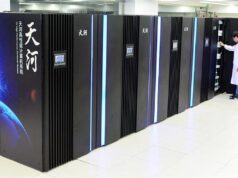In a candid and self-deprecating turn, Nvidia CEO Jensen Huang publicly walked back previous remarks he made about the timeline for useful quantum computing, admitting his earlier comments had been both inaccurate and inadvertently damaging to the industry.
Speaking at the company’s inaugural “Quantum Day” — part of Nvidia’s GPU Technology Conference (GTC) 2025 — Huang acknowledged the stir his statements had caused in January, when he suggested that practical quantum computing was likely more than 20 years away. The original comments sent quantum computing stocks tumbling, rattling confidence in the emerging sector.
Huang Admits Misstep and Praises Industry Momentum
“This is the first event in history where a company CEO invites all of the guests to explain why he was wrong,” Huang said, half in jest but fully in earnest. Speaking to a room full of researchers, developers, and quantum hardware pioneers, he reflected on how his earlier skepticism may have unintentionally harmed perceptions of the field.
In January, Huang had downplayed the near-term utility of quantum computing, saying 15 years was “on the early side” and that 20 years was a more realistic timeline — a sentiment he now describes as overly dismissive.
“I underestimated how quickly these technologies are converging and how vibrant this community is,” Huang said at the event.
He also compared the current state of quantum startups to Nvidia’s own early struggles, noting that it took the GPU giant over two decades to mature its hardware and software platforms into a revenue-generating engine.
Surprised by Market Influence and Industry Response
Huang admitted surprise at how much weight his comments carried in financial markets. “I didn’t even know some of these quantum companies were publicly traded,” he joked. “How could a quantum computing company be public? That was news to me.”
Despite the light-hearted tone, Huang’s remarks also carried a serious message: that nascent technologies deserve patience and strategic investment — not knee-jerk reactions.
Several of the companies whose stocks were impacted by his January comments have since continued making significant progress in error correction, superconducting qubits, and photonics-based architectures.
Nvidia’s Quantum Vision Moving Forward
Nvidia is now positioning itself as a key player in the quantum space — not necessarily through hardware, but by building the classical infrastructure and AI support systems that quantum computing will eventually require.
The company has been actively working on its cuQuantum SDK, a set of tools aimed at helping researchers simulate quantum circuits on classical GPUs, effectively bridging the quantum-classical computing gap.
Quantum Day highlighted a new chapter in Nvidia’s vision: fostering collaboration across quantum disciplines rather than sidelining them. Huang closed the session with a renewed sense of optimism and a clear message to the audience:
“We’re still in the early innings, but I see now that quantum computing has the same kind of long arc of innovation that brought Nvidia to where we are today.”











